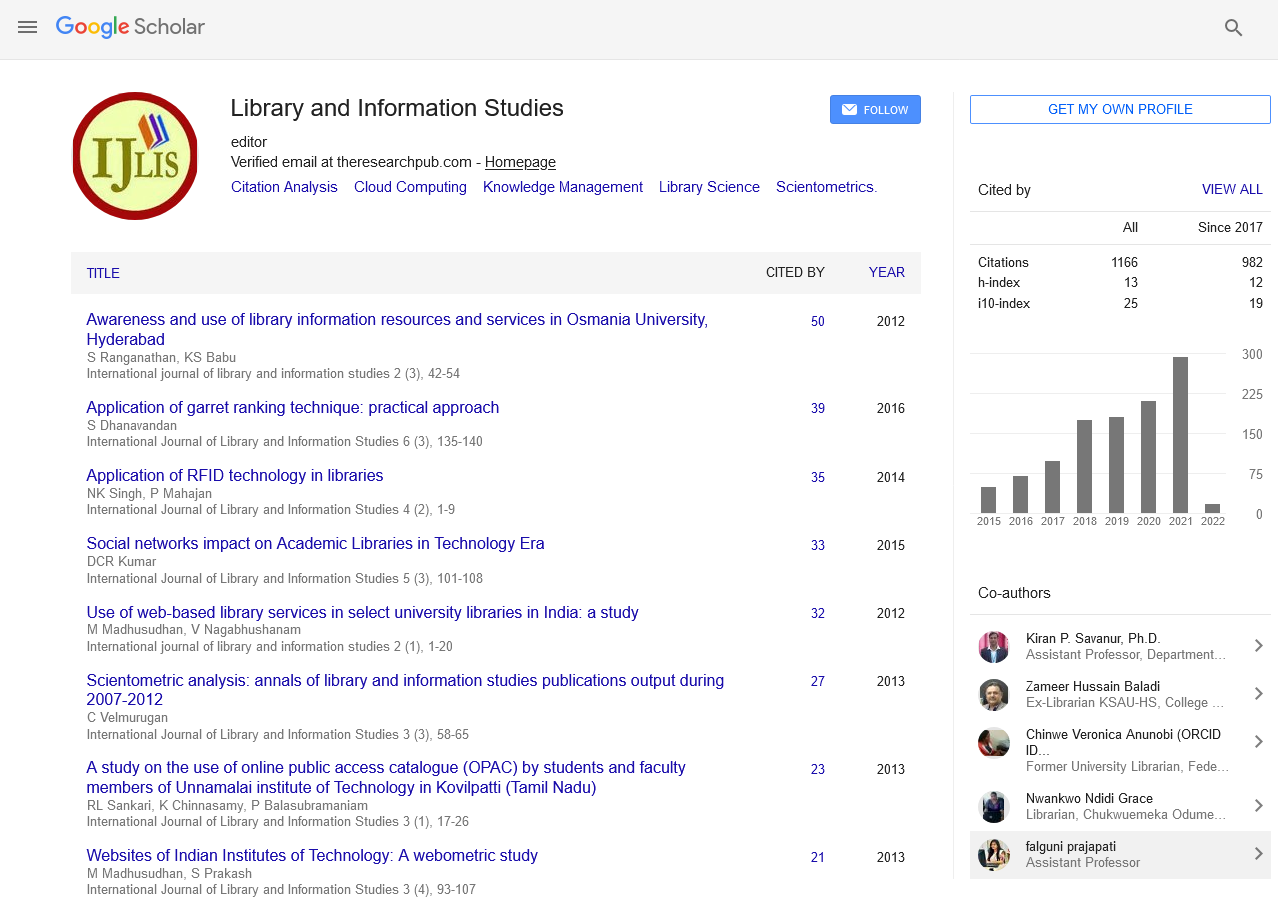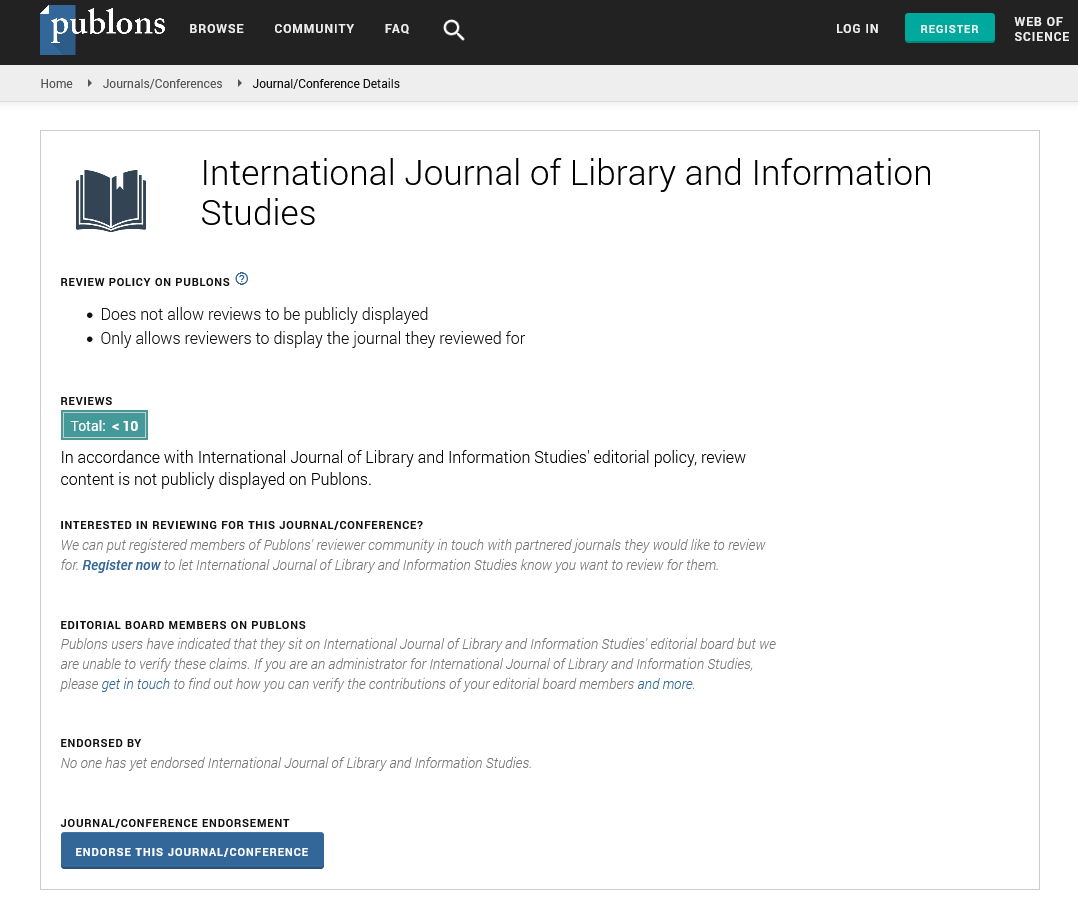

Reflections on the Knowledge Sharing Practices Among Medical Professionals: A Review
Abstract
Author(s): ASHWINI. K, HARINARAYANA.N.S.
Topics related to knowledge management and knowledge sharing have received extensive attention in the recent literature of management and information science. Much of the discussion has focused on how these processes take place - and frequently fail to take place - in formal business, corporate and organizational settings. Knowledge sharing, however, occurs along the entire spectrum of human activity. Often, information and knowledge are shared in ways that appear unregulated and even outright subversive. A literature review was conducted to reveal about information use and knowledge sharing methods that are applicable to the study of patient and may aid in treatment. Information has been identified as a critical factor in improving health outcomes, self management and patient satisfaction. New ways of understanding how practitioners build knowledge for medical decision making and self care are needed . Patient education occurs beyond the boundaries of the healthcare systems so practitioners may wish to broaden their connections with diverse organizations that can enhance medical and health related knowledge. Practitioners are increasingly interested in the contribution that effective management of knowledge across organizational and professional boundaries can make to improved public services. It identifies a set of methods, structures and ethics of "informal" and unauthorized transfer of information, and suggests that these can offer valuable lessons for the further development of the study of knowledge sharing methods, practices and behaviors in all types of settings.
Call for Papers
Authors can contribute papers on
What is Your ORCID
Register for the persistent digital identifier that distinguishes you from every other researcher.
Social Bookmarking
Know Your Citation Style
American Psychological Association (APA)
Modern Language Association (MLA)
American Anthropological Association (AAA)
Society for American Archaeology
American Antiquity Citation Style
American Medical Association (AMA)
American Political Science Association(APSA)



